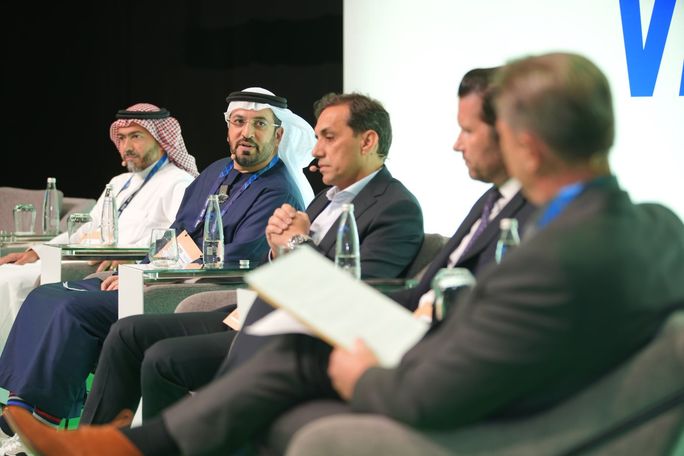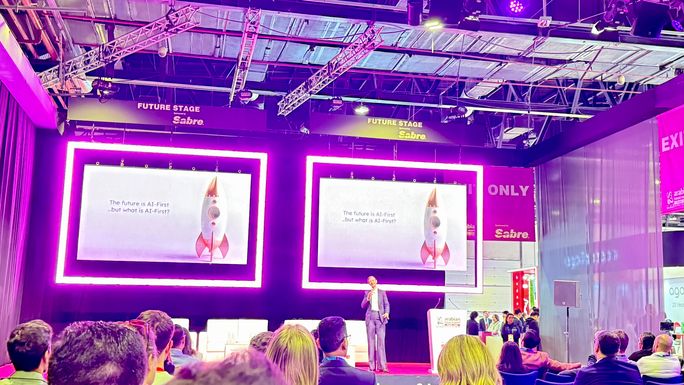Tourism and investment leaders gathered at Arabian Travel Market (ATM) in Dubai from April 28-May 1. The event brought together key members of the global tourism industry who discussed the critical role of strategic investment in unlocking the Middle East's full tourism potential.
Growth in the Middle East
A high-level panel discussion explored how diversified, inclusive and forward-thinking investments are shaping the future of tourism in the Middle East. Representatives from Hilton and Therme Dubai shared insights on the event's Global Stage during the ATM's opening day.
Tourism leaders underlined how hosting large-scale infrastructure investments and mega-events such as the FIFA World Cup and Expo 2020 Dubai is creating a ripple effect across the travel and tourism sector. These events are effectively boosting tourism numbers from international visitors who are experiencing the Middle East for the first time.
Guy Hutchinson, President MEA at Hilton, emphasized the region's impressive development trajectory.
"The Middle East is one of the fastest-growing regions for Hilton in the world and is a blueprint for how to develop a sustainable tourism infrastructure," said Huthinson. "The UAE has gone from developing a tourism industry to exporting its strategy to the world. In the Middle East, there is strong demand across multiple segments, which generates growth for companies like Hilton."
He added that across the region, tourism infrastructure is supercharging growth, driven by strong policy frameworks and coordinated public-private partnerships that foster long-term sustainable development.?

Experts discuss tourism and social impact at ATM 2025. (Photo Credit: Arabian Travel Market)
Sustainability on the Global Stage
ATM 2025's Global Stage also featured strategic dialogue on sustainable destination planning, with experts noting that the region's tourism strategies need to harness sustainability, social impact and community engagement initiatives.
Speakers highlighted national strategies across the UAE, Saudi Arabia and the wider Gulf region that aim to balance rapid growth with inclusive, community-focused tourism development that benefits local populations.
Danielle Curtis, Exhibition Director ME for Arabian Travel Market, highlighted the event's importance: "ATM is proud to offer a platform where global and regional leaders can engage in meaningful discussions that shape the future of travel and tourism. Through sessions like this, we bring together a variety of voices to share ideas, challenge assumptions and develop innovative strategies that benefit the entire industry."
Mashhoor Baeshen, Executive Director of Commercial and Business Development at Cruise Saudi, explained the company's approach to authentic tourism experiences.
"Manpower is part of giving the full experience of a country. So how do we invest in local people to make sure that we echo their experience to the guests?" said Baeshen. "At Cruise Saudi, we work on different initiatives including visiting? universities that have hospitality programs to engage the students to be onboard. The Ministry of Tourism also has targets for Saudisation in the tourism industry. For example, tour guides have to be Saudi. For us, this is a great experience, because the first flavor you get from a country is when you deal with its people."?

AI Adoption on the Future Stage at Arabian Travel Market 2025 (Photo Credit: Janeen Christoff)
The Future Stage, Travel Technology and AI
AI took center stage at ATM, with the Future Stage hosting Cassie Kozyrkov, CEO of Kozyr and Google's first chief decision scientist, who led an insightful discussion on AI adoption in the tourism sector.
The discussion emphasized practical application of AI in business and daily life, moving beyond buzzwords such as "AI first" to concrete implementation strategies. Kozyrkov highlighted that AI tools like ChatGPT, Claude and Gemini offer user-friendly interfaces similar to text messaging, making them accessible to everyone without specialized technical knowledge.
She noted that the key to effectively using AI is to identify tasks important enough to improve and then seek AI suggestions. Examples included using AI for proposal submissions, product strategies and even parenting advice. The simplicity of these tools eliminates the need for specialized knowledge, opening up AI to a broader audience.
Kozyrkov stressed that while AI may not always provide perfect solutions, the effort to improve tasks is worthwhile. She encouraged users to identify important processes in their digital life and regularly ask AI tools for suggestions on how to make daily tasks and workflows more efficient.
Technology and innovation were prominently featured throughout the event, with an increase of 23 percent in the number of companies exhibiting compared to previous years. AI solutions were at the forefront of many of their offerings, demonstrating the rapid technological transformation underway in the travel and tourism industry.
For the latest travel news, updates and deals, subscribe to the daily TravelPulse newsletter.
Topics From This Article to Explore